Search Results
Showing results 1 to 20 of 103

The Dirt on Dirt
Source Institutions
In this fun gardening activity, learners discover their soil type. There are three basic soil types: sand, silt, and clay.

Animal Attraction
Source Institutions
Investigate a flower's power of marketing by making an imitation flower that successfully signals a bee (or other pollinator of your choice) to visit.
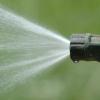
Skin Deep
Source Institutions
In this activity, learners explore how to protect their skin while applying pesticides to plants.

Glove Gardens
Source Institutions
In this activity, learners create a garden in a disposable glove. They learn about the conditions necessary to make the seeds sprout and actively participate in caring for their plants.
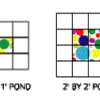
Paths and Ponds
Source Institutions
In this activity, learners use squares to figure out how many border tiles are needed to enclose different areas.
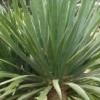
How Plants Grow
Source Institutions
In this biology activity (page 3 of the PDF), learners will explore how plants turn sunlight into food through a process called photosynthesis.

Floating and Sinking Fruits and Veggies
Source Institutions
In this activity, learners will explore the density of an object in water. Learners will compare what happens to fruits and vegetables in regular and salt water.
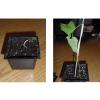
What's Hiding in the Air?: Acid Rain Activity
As a model of acid rain, learners water plants with three different solutions: water only, vinegar only, vinegar-water mixture.

Composting
Source Institutions
In this environmental science activity, learners research what is essential for plant life and the necessary components of soil to support plants.
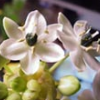
Film Canister Farming
Source Institutions
In this hands-on botany activity, learners sprout vegetables in film canisters.

Patterns and Relationships: Peddling Petals
Source Institutions
In this math lesson, learners use the setting of a flower-making fundraiser to explore a variety of patterns. Learners examine the patterns in a flower design made of triangles surrounding a square.
Growing Plants: Track Their Growth
Source Institutions
In this activity, learners will be working with predictions with a time frame of one week, or longer. Start by planting seedlings.

Rooftop Gardens
How does a green roof, or roof covered by plants, affect the temperature of the inside and outside of a building? Learners design and build houses to find out the answer.

Squishy Soil
Source Institutions
In this activity, learners will investigate the part of soil. Explore how clay, silt, and sand make up the dirt in your background. Activity includes step-by-step instructions and extension ideas.

The Colors of Flowers
Source Institutions
In this activity, learners perform an experiment to find out what determines a flower's color.
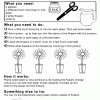
Find Out How Plants Use Water
Source Institutions
In this activity, learners investigate how plants use water. By making the flowers change color, learners see how water moves up the stem to the leaves and the flowers.
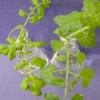
Tobacco Mosaic Virus
Source Institutions
In this four-part laboratory exercise, learners investigate properties of Tobacco mosaic virus (TMV) including (1) symptoms induced by the virus in susceptible plants at the macroscopic and microscopi

Pollinator Bath
Source Institutions
In this activity, learners will build a design and build a place for pollinators to drink from.

Dye Like A Natural
Source Institutions
In this activity, learners stain fabrics--on purpose!

Tree-mendous Plots
Source Institutions
In this math lesson, learners record and graph plant growth and interpret data. Learners plant seeds, and once the seeds sprout, record the change in height of the plants for several days.
